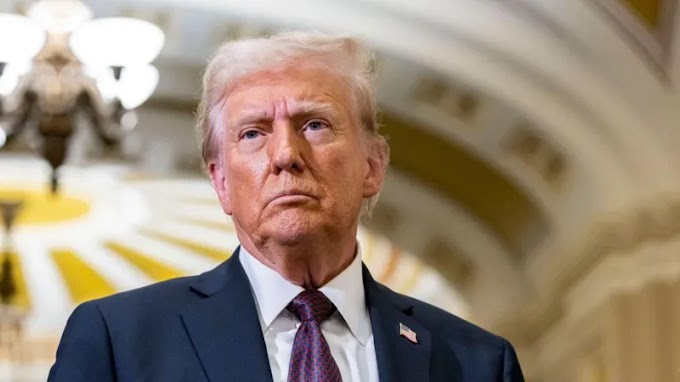 |
| TikTok says US boycott would have 'faltering' influence on free discourse (Image: Getty Images) |
TikTok contended in court on Monday that a US regulation - which would see it restricted except if it is sold by ByteDance - would have a "faltering" influence on the free discourse of its US clients. The law was provoked by worries that US clients' information is helpless against double-dealing by China's administration. TikTok and ByteDance have over and again denied connections to the Chinese specialists. The organizations sued to hinder the regulation toward the beginning of May, calling it unlawful and a viable restriction on the discourse of its 170 million US clients.
A board of three appointed authorities heard its contentions at a requests court in Washington DC on Monday. "This regulation forces exceptional discourse denial in light of vague future dangers," TikTok and ByteDance's legal counselor Andrew Pincus told the court. Worries around China came up ahead of schedule, with Mr Pincus expressing that the firm "isn't possessed" by the country. "The proprietor of TikTok is ByteDance Restricted, a Cayman Islands holding organization," he said.
However, Judge Sri Srinivasan answered that the firm was "dependent upon Chinese control". Mr Pincus said the US government claims no impropriety has occurred - and the firm was being rebuffed over the idea that there may be issues from now on. Yet, he was tested on his contention that the law would be an extraordinary prohibition on a solitary speaker - and his case that it would be "impractical" to strip the US arm of the firm. Judge Ginsberg contended the law is "an outright bar on the ongoing plan of control" of the organization, not the actual organization. He likewise said it designated a gathering of organizations constrained by a supposed unfamiliar enemy, instead of TikTok alone. When and for what reason might TikTok at any point be restricted in the US?
Protected right
Jeffrey Fisher, addressing makers worried by the law, said it could hinder their protected right to work with their preferred supervisor and distributer - like TikTok under its ongoing proprietorship. In any case, Division of Equity attorney Daniel Tenny contended against TikTok's protection that the code behind its foundation is situated in the US. "There's actually no question here that the suggestion motor is kept up with, created, and composed by ByteDance instead of TikTok US," he said. "It isn't articulation by Americans in America - it is articulation by Chinese architects in China." Mr Fisher had guaranteed posts on the stage in the US were American discourse that was "at most organized by an unfamiliar organization". Notwithstanding information concerns, authorities and legislators have communicated alert at the possibility of TikTok being utilized by the Chinese government to spread publicity to Americans.
Nonetheless, promoters of America's strong free discourse privileges, revered in the Primary Revision of the US Constitution, have said maintaining the strip or-boycott regulation would be a gift to tyrant systems all over. "We ought not be shocked if severe legislatures the world over refer to this point of reference to legitimize new limitations on their own residents' more right than wrong to get to data, thoughts, and media from abroad," said Xiangnong Wang, a staff lawyer at Columbia College's Knight First Correction Establishment.
'High stakes'
However, as per James Lewis, of the Middle for Vital and Worldwide Examinations in Washington, the law was drafted to endure legal examination. "The substance of the body of evidence against TikTok is areas of strength for extremely," Lewis said. "The central issue is whether the court acknowledges that requiring divestiture doesn't control discourse." Mr Lewis added that the courts generally concede to the president on public safety matters. Despite how the requests court rules, most specialists concur the case could delay for a really long time, while perhaps not longer. Mike Proulx, VP and research chief at examination firm Forrester, added the "high stakes" case would almost certainly advance to the US' most elevated court, the High Court.
-SOURCE: BBC NEWS.














0 Comments